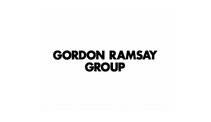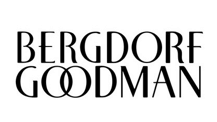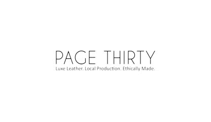Electronics Industry
Metal stamping is often used to create components for electronic devices, including connectors, springs, and various types of terminals and contacts.
Medical Industry
The medical industry often requires small, precise, reliable parts for various medical devices.
Agriculture Industry
Stamped metal parts are often used in various types of agricultural machinery and equipment.
Tool Design
This involves creating detailed blueprints or plans for tools based on specific requirements. It requires a deep understanding of materials, manufacturing processes, and design principles.
Simulations
Before the actual manufacturing process, simulations are run to predict how the tool will perform under various conditions. This helps in identifying potential issues and optimizing the design.
Reverse Engineering
If a customer has an existing tool but not its design details, reverse engineering can be used to recreate the design. This involves analyzing the tool’s structure, function, and operation.
Prototype Tooling
This involves creating a working model of the tool based on the design. The prototype is used for testing and validation before moving to production.
Production Tooling
Once the design and prototype are finalized, production tooling involves manufacturing the actual tools in volume. This requires precision and consistency to ensure all tools meet the required standards.
Tool Refurbishment
Over time, tools can wear out or become outdated. Refurbishment involves restoring them to their original condition or updating them to meet current standards. This can be more cost-effective than replacing them entirely.
Our Capabilities
Stop by today; our talented staff will be happy to help you find what you’re searching for!
CEO: Steven Rogers

How we do it
MNFT engages and catalyzes the textile industry across the supply chain through partnerships and collaborations, building knowledge and capacity to inform and educate. We further leverage our influence to create action, change and collective impact.
Our Capabilities
At VRR Tooling & Stamping LLP, we offer a wide range of capabilities to meet our customers’ diverse needs. Here’s an overview:
- Tool Designing in CATIA: We use CATIA, a leading CAD software suite, for precise tool design tailored to your specifications.
2. Simulation with AutoForm: We ensure optimal performance and reliability of our tooling designs through accurate simulations of sheet metal forming processes using AutoForm, a renowned simulation software.
3. VMC Machining in Cimatron: We execute VMC machining operations with precision, efficiency, and flexibility using Cimatron’s advanced CAM capabilities.
4. Die Standard Parts Selection: We offer a range of standardized die parts from Misumi, with the option to incorporate Fibro standard parts or other standard parts from reputable suppliers as needed.
5. Tool Steels and Treatment: We use imported D2 tool steel, C45 or M.S. for die sets, and guiding elements from Misumi and OHNS. We also employ vacuum heat treatment to optimize the mechanical properties of our tooling components.
6. Various Departments: We have various departments including Design, CAM, Purchase, Manufacturing, Marketing & Design, Outsourced Design, Stores, Assembly, and Quality Assurance. Each department plays a crucial role in the company’s operations and contributes to its success.
These capabilities enable us to deliver high-quality tooling and stamping solutions that meet the specific needs of our customers. We continually strive for excellence and aim to deliver value-for-money solutions. Our focus on customer satisfaction, supplier partnerships, and employee well-being sets us apart in the tooling and stamping industry. If you have any more questions or need further information, feel free to ask! 😊
It seems like you’re listing different departments or roles within VRR Tooling. Here’s a brief explanation of each:
- Design (03): This likely refers to the team responsible for designing the tools and stampings. They would use CAD software to create precise, detailed designs based on customer specifications.
2. CAM (08): This refers to the team that uses Computer-Aided Manufacturing (CAM) software to plan, manage, and control the manufacturing operations.
3. Purchase (01): his could be the procurement team that handles the purchasing of raw materials, machinery, and other necessary items for the manufacturing process.
4. Manufacturing (08): This is the team that actually produces the tools and stampings based on the designs and plans provided by the Design and CAM teams.
5. Marketing & Design: This team is likely responsible for promoting the company’s products and services, as well as designing marketing materials such as brochures, websites, and advertisements.
6. Outsourced Design: This suggests that some design work is outsourced to external agencies or freelancers.
7. Stores (01): This could refer to the team that manages the inventory of raw materials, finished products, and other items.
8. Assembly (06): This team is likely responsible for assembling the various parts into the final product.
9. Quality Assurance (01): This team ensures that the final products meet the company’s quality standards and customer expectations. They might conduct various tests and inspections to verify the quality of the products.
The numbers in parentheses might indicate the number of employees in each department or role. Please note that this is a general interpretation based on typical roles in a manufacturing company. The actual roles and responsibilities at VRR Tooling might vary. If you have more specific information or questions, feel free to share! 😊





